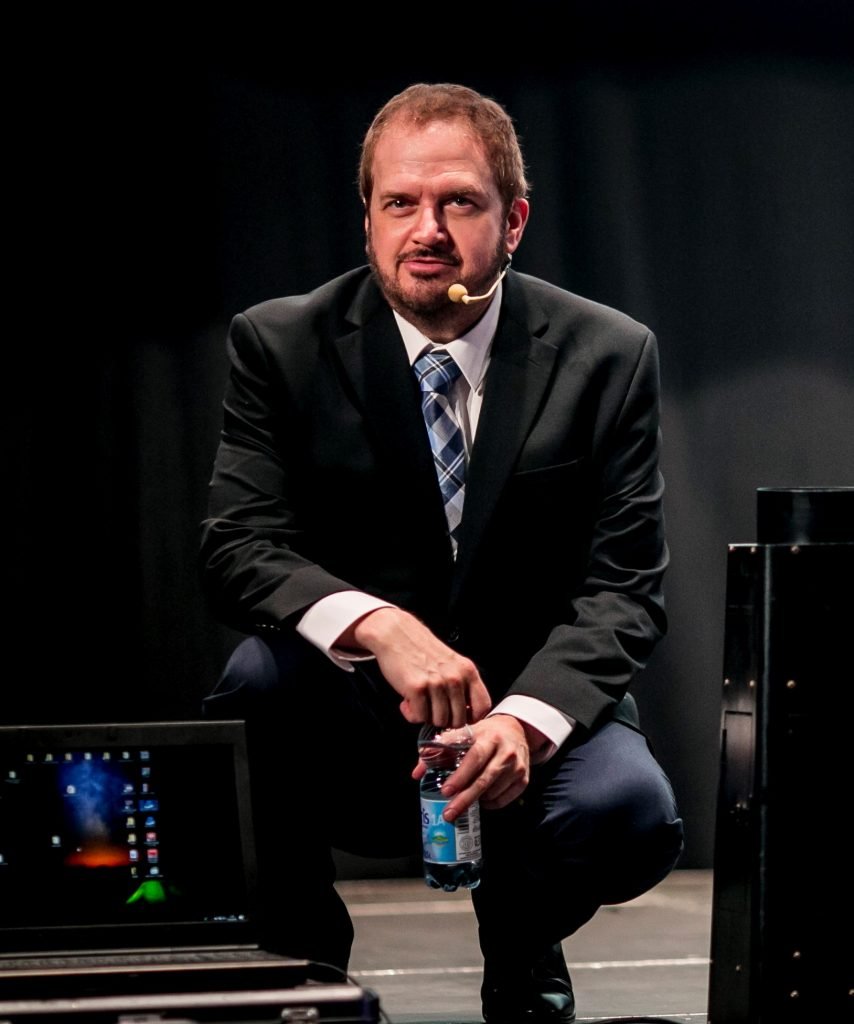Anticipated Regret
Imagine: Something (anything) goes wrong in life where two people or more are involved. The kids get sick, you lost your investment money in an Emerging Markets Fund, your website crashed so you didn’t make money last month, maybe you don’t have enough money for an important purchase.
And then you hear this…
“If you would have cleaned the dishes right the kids would be healthy.” “If you had invested in American stocks you’d have made a ton of money.” “If you’d have hired someone to fix the website you would have made money instead of losing it.” “if you would have saved, we could have afforded to get a new car.”
The same person who turns your personal choices into blame issues is the same person who doesn’t want to experience regret themselves so they will say “no” to anything that they are not familiar with as their reason to say, “no.”
“I tried this once, it doesn’t work.”
“I lost money in an investment, never again.”
“I got married once it was a disaster, not going to do that again.”
“I tried to start a business once and it didn’t work.”
“I trusted you once, you blew it, I’m not going to trust you again.”
Sometimes saying “no” is really important. It can help to establish sensible life parameters and values. But “no” can also be stopping everything good that can happen in life.
As foolish as all the above statements appear, and on average they are, the fact is that this is how MOST humans make their decisions. In fact one of the biggest causes of people living destined for ultimate failure is that they shut every door of possibility and go only through the painful door that doesn’t have good results attached to it. What happens instead? They live in the very narrow space of “it’s not great but at least I know what is going to happen every day.”
Imagine the conversation, 15 years ago. (Short version of a true story.)
“You want to take one of our few space launches of the year and send the spacecraft out for 10 YEARS in the HOPE of landing on a 3 mile WIDE comet?!”
It’s like a speck of dust being thrown at another speck of dust from New York and that speck finding a chosen speck of dust in Anaheim, California, 10 years later. It’s almost ridiculous sounding. If you miss it was all for naught.
But that craft, Rosetta, landed on that speck of dust after a 10 YEAR trip. (This is more than 5 times longer than it takes to get to Mars.)
There’s no regrets…NOW, in 2018.
But can you imagine the conversations from a 15 years ago?!?!
It’s 2018 and a lot of people you talk to really regret not having made better decisions this year. Maybe they think, “another year wasted,” or “I wish I would have…”
So why didn’t they make better choices? Why didn’t they act on obvious ways to something better in life?
Could YOU have gotten them to act?
Perhaps. Here is the SECRET: People are terrified they will screw up.
Key Point: Almost all decisions come down to – “I don’t want to screw up and be seen as stupid.”
Get past that fear in others and you can influence them.
Influence: Boot Camp – in Las Vegas is just around the corner. Today’s article gives you important foundation so you are prepared when you arrive at Boot Camp. Dealing with their feelings of regretting their decision in advance and in arrears is one of the most important factors in being influential in the moment.
Here’s what you need to know before we delve deeper into this mess that almost everyone gets themselves into when attempting to influence others.
First let’s get inside of their head, right now, so you KNOW what they are thinking, the stress they are feeling. Here is what’s running through their mind.
- “If I do this I’m an idiot…”

- “I shouldn’t do this…”
- “I wish I wouldn’t have this decision to make…”
- “I’ll regret it…”
- “I know this is going to be a mistake…”
- “It’s all going to go wrong and I will get blamed…”
How do Influencers tend to screw up their presentations or simple communication when they above all should know better?
Getting Past 3 Levels of Regret
There are three levels of fearing regret in the human psyche that I want you to dig through today. Here is how they developed, how the fear of regret stops the processes of influence and persuasion; and even more importantly, how the fear of regret erodes the spirit of the person.
Today you find out how to break through the walls of fearing regret.
The feeling of regret is something that people do almost anything to avoid.
That’s a scientific fact.
When people are afraid they are going to make “the biggest mistake of their life,” they tend to say, “no.”
And of course, the biggest mistake is the one that comes from the decision they face right now in this moment.
Interesting huh?
When people fear they will regret doing something, you can assume that they will say, “No.”
“As you grow older, you’ll find the only things you regret are the things you didn’t do.”
And of course it’s true but most people never do the thing would have given them something special. Now you can change that…
Think about the advice of the grandmother to her grandson (quoted just above).
Why is it that as people age, they look back and say, “I wish I would have….?”
You rarely hear anyone say, “Geez, I wish I wouldn’t have…”
People Deeply Regret Their Own Inertia…
From the long view back, people regret not doing things. People regret not taking even the smallest risks and chances.
They regret their inertia when it came to anything outside of their comfort zone.
 Why didn’t they simply do it when they had an opportunity?
Why didn’t they simply do it when they had an opportunity?
When influencing others, address THIS level of regret. In the moment people often say “no,” to many of the things they wished they would have said “yes” to 30 years later.
“I know what it’s like to be presented with an opportunity only to deeply regret that I passed on it later. I’ve done some pretty stupid things…”
Remember: People Don’t Want to Regret Being Wrong
People don’t want to be wrong. Drill it into the core of your thinking and communication.
They don’t want to make a mistake. This is why people and companies who try and get a product perfect the first time,typically go broke. The fear of imperfection can be incredibly destructive.
People would rather get a divorce and spend millions on the divorce than admit they said something wrong in a fight. You were right…good job…it just cost you a million bucks….
When influencing others, address THIS level of regret. In the moment people often say “no,” to many of the things they wished they would have said “yes” to 30 years later.
“I know what it’s like to be presented with an opportunity only to deeply regret that I passed on it later. I’ve done some pretty stupid things…”
If someone takes an actual action, they have the potential to be wrong or make a mistake. If they do nothing they can’t be accused of being wrong!
They might look stupid.
They might feel embarrassed.
They might take hits from family, friends, the public, their community.
but…
 If they do nothing…then there is nothing to fear. If people do NOT act, then they can’t do anything wrong, make mistakes or look bad. They will remain hidden in the crowd and that…is present time psychological safety.
If they do nothing…then there is nothing to fear. If people do NOT act, then they can’t do anything wrong, make mistakes or look bad. They will remain hidden in the crowd and that…is present time psychological safety.
Anything you want someone to do will come squarely up against the feelings of anticipating regret.
In almost every case, regret will emerge victorious and the person will “pass” or say, “maybe next time” or, “I’m not ready for that yet”, or anything that doesn’t require taking one step forward.
It takes an enormous amount of energy to overcome the anticipation of regret.
What do you do?
People Tend to Inaccurately Attribute Cause and Effect
Just because a specific choice is the right decision to make from a logical point of view, this in no way influences the person deciding. Quite the opposite. They will do what they feel is the right thing to do, in the face of factual knowledge that clearly shows otherwise.
Every second that passes, humans link one thing with another and immediately create a cause and effect scenario in the brain.
These very same cause and effect linkages cause people to make a lot of decisions for inaction that would have otherwise increased their chances of success, happiness, finding love, etc.
Someone asks another person out on a date.
They are rejected.
They do it again with the same result.
And, they stop asking, assuming that the other 4 billion people of the same sex will have the same response.
 I don’t want to be rejected.
I don’t want to be rejected.
You don’t want to be rejected.
We don’t want to feel the regret of looking bad and feeling rejected.
Therefore, we stop asking.
People are rapidly conditioned to think “from the gut” and make poor decisions most of the time, which is why they don’t act on ANYTHING in life.
So what do YOU do to persuade the one who is about to anticipate regret?
The social atmosphere of others and their own fears from “experiential learning,” causes people to NOT take a chance.
It stops them from pulling the decision trigger because of the regret that awaits them from the judgment of others.
If they speak up or decide to do ANYTHING, they might be seen as “aggressive.” These feelings and learned instincts will cause the people to go broke or be unhappy in life. Almost everyone will allow the anticipated regret of failure in all of its manifestations to stop them from doing the right thing…unless YOU intercede.
When working with others you’ll see how people’s instincts stop them cold. If you simply play with your gut in life, you won’t regret inaction in the short run but you will in the long run. In fact, “evidence” will teach you that if you follow your gut, you will seemingly make “good decisions” and stay out of trouble. You “feel” like you are doing the right thing because you are regretting fewer and fewer of your “choices” (inaction) but what is really happening is your stack of life chips is dwindling…
Your job as an influencer is to cause other people to sidestep their learned experience.
Inaction FEELS RIGHT because it brings no immediate regret.
 Key Point: You must get people to look back on this moment, right now and cause them to see that inaction is what they WILL regret.
Key Point: You must get people to look back on this moment, right now and cause them to see that inaction is what they WILL regret.
Only looking back does the person then realize the mistakes they were making by doing nothing!
Inaction typically leads to ultimate loss and failure even when it “feels right” to not take action.
And it goes deeper and the distinctions become more powerful.
The Influential Approach for Can-Do Versus No-Do People
Some people approach life with a “do attitude” or an “action attitude trait.” Sometimes they win. Sometimes they lose. But this is who they are. They tend to take actions when presented with a sensible opportunity.
Others approach life with a “no do attitude” or an “inaction attitude trait.” They almost always feel like they made the right decision. And generally there is apparent evidence to prove that assessment wrong. These people tend to not take actions when presented with an opportunity.
These two people will experience regret or anticipated regret at very different times. If you know when, you can change your entire approach in influencing them!
The Most Powerful Regret
Regret is most powerful when people do the opposite of who they see themselves as (action or inaction) seemingly causing them to lose, make a mistake, fail, or otherwise screw up.
That’s where regret is the greatest.
What Causes this Mess?
Consistency and classical conditioning cause this mess and it reinforces the “inactive” person to further inaction in the future.
Regret is felt most deeply when someone loses/makes a mistake AND when they did the opposite of what their personality normally would have done. Pairing the two together is what quite often causes deep regret.
If they follow their general personality direction, they would not have felt any significant regret and they know it… and in the future they are much less likely to move in opposition to “who they are” as a person.
 One person is an “action” person and the other an “inaction” person. The inaction person will be upset with the action person in the majority of the decisions made, because in a majority of situations, the action will cost. The action person will be wrong (as viewed in the short-term) and make more mistakes in the short-term. In general, when people take an action they either lose or win fairly big. (So big that it erases all the small losses of the failures from taking actions.)
One person is an “action” person and the other an “inaction” person. The inaction person will be upset with the action person in the majority of the decisions made, because in a majority of situations, the action will cost. The action person will be wrong (as viewed in the short-term) and make more mistakes in the short-term. In general, when people take an action they either lose or win fairly big. (So big that it erases all the small losses of the failures from taking actions.)
In general when people “take an inaction,” …they do nothing…. nothing significant seems to happen. As you have seen, this apparent fact is quite incorrect.
And so when you are attempting to influence someone, you now know that it is the personality “direction” or “attitude” that will most often influence the individual’s ultimate decision. If you ask someone to move in a direction opposite of their standard direction, they will feel anticipated regret immediately and great regret when failure happens, regardless of whether the decision made sense.
Remember the story of Rosetta, the spacecraft that found a speck of dust after 10 years! A truly remarkable achievement, never attempted, succeeded only because the people making the decisions walked past anticipating regret, preparing for all kinds of things going wrong and creating then executing a plan.
Now, I’d regret overloading you with any more distinctions, so I guess we’ll bridge to Influence: Boot Camp!
Reserve your spot now!
Kevin Hogan Personal Appearances, Classes, Seminars & E-Courses
See Kevin Hogan “Live” in person, or participate in an online E-course with personal connection time and attention from Kevin Hogan!























